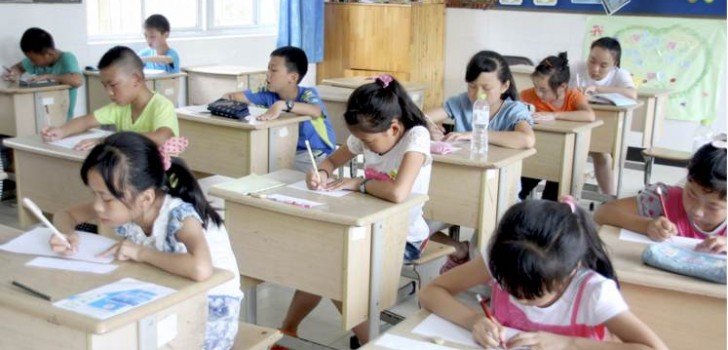In Japan, young children have been known to take public transportation on their own and without parental supervision. Some of the children are as young as six or seven years old, and they use the services to get to and from school.
Sending children out into the world at a young age is commonplace in Japan. One show that has been on Japanese television for more than 25 years is called Hajimete no Otsukai, or in English, My First Errand. The show features children as young as two or three years old completing everyday tasks for their families, such as going to the grocery store or the bakery.
While some children may be a slightly apprehensive at first, most become accustomed to the practice in a very short amount of time.
One independent train-riding 12-year-old named Kaito said, “At first I was a little worried whether I could ride the train alone, but only a little worried.” Kaito started riding the train when he was nine. Now he says that riding the train alone is easy.
Kaito’s parents were a little nervous at first as well. In fact, they were probably more nervous than Kaito himself. However, they convinced themselves that it was okay because many other children were doing it safely.
Sure enough, Kaito has been taking the train without any incident.
Kaito’s stepmother says, “Honestly, what I remember thinking at the time is, the trains are safe and on time and easy to navigate, and he’s a smart kid. I took the trains on my own when I was younger than him in Tokyo,” his stepmother recalls. “We didn’t have cell phones back in my day, but I still managed to go from point A to point B on the train. If he gets lost, he can call us.”
According to cultural anthropologist Dwayne Dixon, group reliance enables Japanese young people to become highly independent when compared to children of other cultures.
Dixon says, “[Japanese] kids learn early on that, ideally, any member of the community can be called on to serve or help others.”
At school, this message is reinforced. Children of Japanese schools take turns doing routine chores, such as cleaning and serving lunch. They do not rely on staff to perform these duties. Labor is distributed, and everyone learns useful practical skills.
Children in Japan learn how to take responsibility for public spaces at an early age. They know that if they make a mistake, they will have to fix it. However, they also know that in an emergency, other members of the group will be able to help them.
Another reason that Japanese children are able to function independently in public spaces is because of Japan’s very low rate of criminal activity. Parents of these children feel better about sending their kids out alone because of this low rate.
Additionally, public transportation is the norm in Japan, as more than 50% of all trips in Tokyo are made using public transportation systems. Another 25% of these trips take place on foot. Drivers in the city are accustomed to sharing the road with pedestrians and cyclists.
Parents typically perceive Japanese cities to be much safer than American cities. Kaito’s stepmother admits that she would not have allowed Kaito to ride the subway in London or New York alone as a 9-year-old. She says that the Tokyo subway system is much less risky.
By providing their children with the responsibility of being independent, parents place a great deal of trust in both their kids and the community as a whole. It can certainly be fascinating to Westerners who observe the level of unspoken trust and cooperation that takes place in Japan.
Stay Connected